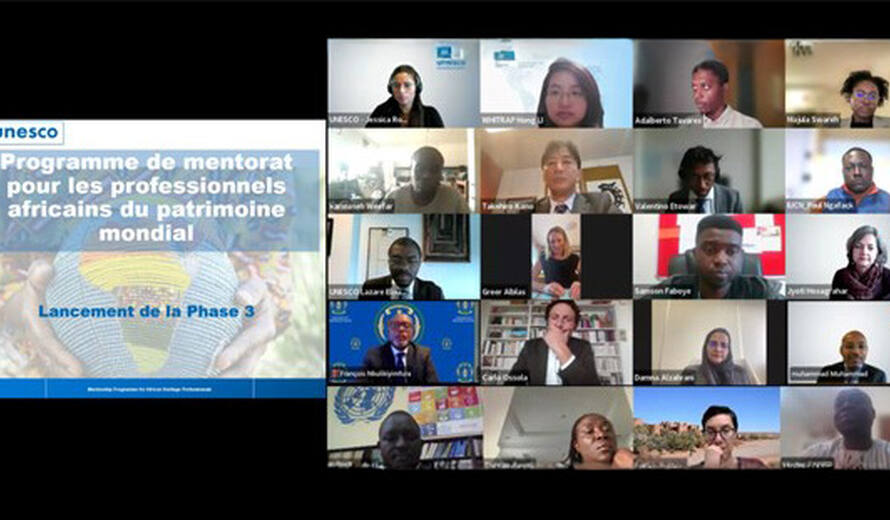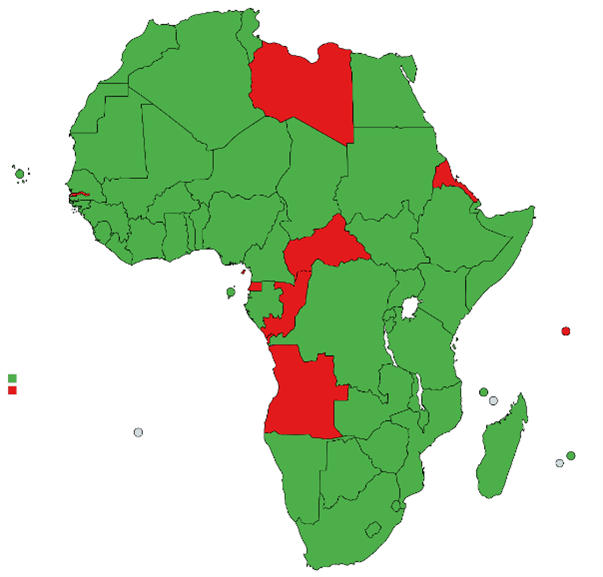
Our Correspondent | Africa Guardian
On November 13, 2024, UNESCO’s World Heritage Centre celebrated the online launch of Phase 3 of the Mentorship Programme for African Heritage Professionals. The event, attended by over 100 participants, introduced 20 new mentees into the program, advancing its mission to cultivate a new generation of African heritage experts.
Opening the Event
Mr. Lazare Eloundou-Assomo, Director of World Heritage, inaugurated the event with a call to action for the mentees to explore, learn, and transform Africa’s heritage landscape. His remarks were complemented by insights from other distinguished speakers, including:
- H.E. Ms. Greer Alblas, Ambassador and Permanent Delegate of Australia to UNESCO, who emphasized the program’s role in fostering connections, partnerships, and a collective stewardship of heritage sites.
- H.E. Mr. François Nkulikiyimfura, Chairman of the Africa Group and Rwanda’s Ambassador to UNESCO, who highlighted the program’s inclusivity, particularly in integrating local communities and promoting women’s involvement in heritage management.
- Mr. Paul Ngafack, Representative of IUCN, who reiterated the importance of partnerships in achieving the program’s objectives.

Testimonials and Impact
The program has already made a significant impact on participants. Mentees like Mr. Adalberto Tavares of Cabo Verde shared how their involvement has led to career milestones, including being invited to join national teams preparing future World Heritage nominations.
Mr. Moctar, a mentee from the pilot phase now serving as Burkina Faso’s Director General of Cultural Heritage, encouraged newcomers to commit to the program’s demands, calling it an invaluable investment in their professional growth.
Mentors also highlighted collaborative successes, such as Mr. Thomas Rabeil, whose mentees’ recommendations have been integrated into official funding plans for Rwanda’s Nyungwe National Park by the European Union.
Achievements and Goals
By 2025, the program aims to have mentored 60 junior experts (30 men and 30 women), a target that is set to be achieved thanks to support from UNESCO Member States, including Australia, China, France, Japan, Saudi Arabia, and South Korea, as well as ICCROM.
Looking ahead, the program’s additional goal is to ensure that by 2029, every African country has at least two empowered professionals actively contributing to the World Heritage system.
A Collaborative Future
The Phase 3 launch underscored the program’s commitment to fostering sustainable practices, expanding opportunities for African heritage professionals, and strengthening international collaboration. As UNESCO continues to invest in the future of African heritage, the program remains a testament to the power of mentorship in building a resilient and inclusive cultural legacy.
___
